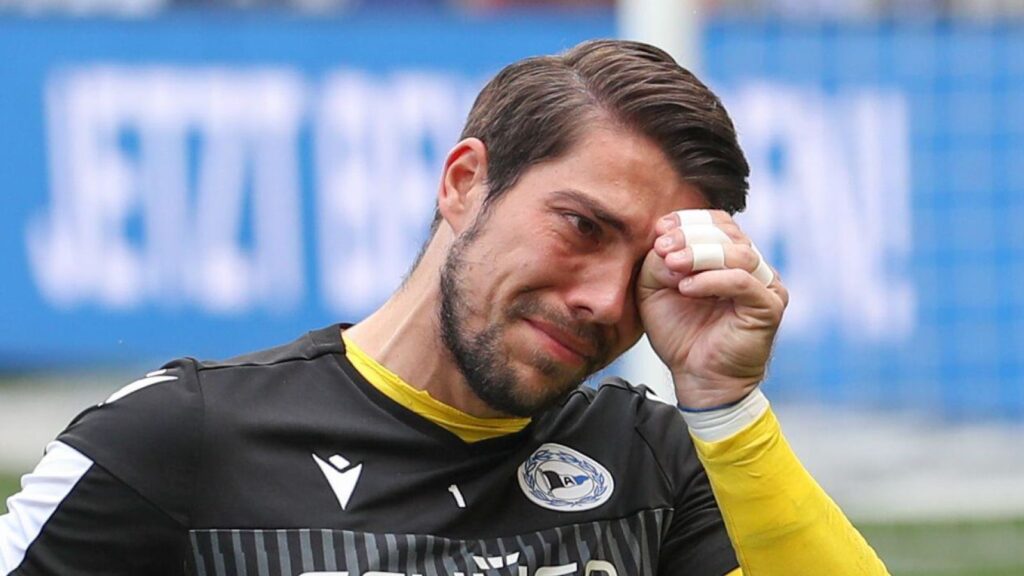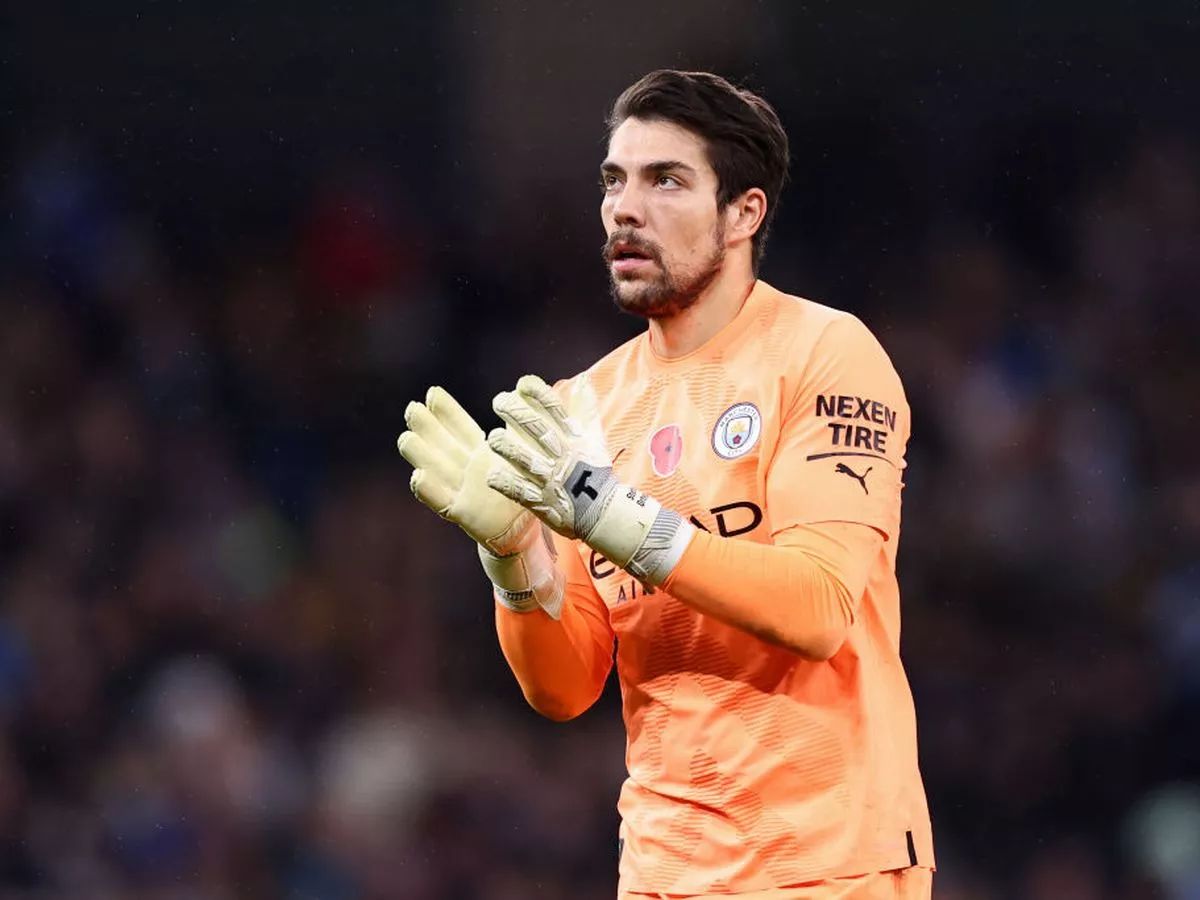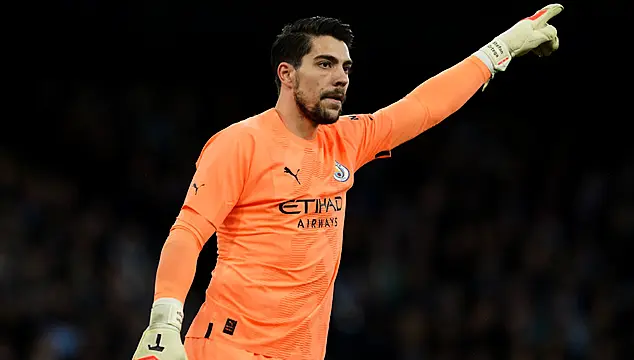
Kyle Walker and John Stones react as Manchester City announce Scott Carson exit, Stefan Ortega also sends message
Manchester City have now announced the departure of Scott Carson.
The 39-year-old initially arrived at the Etihad Stadium on loan from Derby County in 2019 before his move was made permanent in June 2021, going on to make just two appearances under Pep Guardiola.
However, the Englishman has been an influential figure behind the scenes, using his experience to help others as Manchester City hoovered up 12 trophies with the Whitehaven-born glovesman on board.
Now, John Stones and Kyle Walker have sent messages to Scott Carson – along with Stefan Ortega – after Manchester City announced the news.
What Manchester City stars have sent to Scott Carson
The Leeds United academy graduate is clearly a popular man at the Etihad Stadium.
Firstly, Ortega wrote: “The best! Thanks for all your support during my time here. We will miss you.”
Stones then quickly followed the German’s heartfelt message by simply writing “what a guy” after hearing Carson is set to leave.
Walker then added that the Manchester City No.33 is “one of a kind” as he prepares to leave when his contract officially expires at the end of June.

Ruben Dias and Nathan Ake also responded, solely posting a heart emoji each with no words.
Hugo Viana already knows who he wants to replace Scott Carson
Hugo Viana has made an impressive start to life as Director of Football after replacing Txiki Begiristain, with deals for Tijjani Reijnders, Rayan Cherki and Rayan Ait-Nouri already close to completion.
The evidently organised Portuguese negotiator has also already made a decision on who should replace Carson, as Manchester City now prepare a bid for Marcus Bettinelli of Chelsea.
John Stones and Kyle Walker could follow
Interestingly, the two England internationals could soon follow Carson out of the Etihad Stadium.
verton want to sign Stones, who Manchester City are open to selling after an injury-hit 2024/25 campaign, where he made just six Premier League starts.
Guardiola also wants to sell Walker after loaning him to AC Milan for the second half of last season, where the right-back failed to impress enough for the Italian giants to pursue a permanent deal.
Pep Guardiola: Ederson, Stefan Ortega will both stay at Man City
Manchester City coach Pep Guardiola has said goalkeepers Ederson and Stefan Ortega will both stay at the club and downplayed any interest in Espanyol’s “extraordinary” Joan García.
Ederson had an offer to move to the Saudi Pro League last year and there was a feeling that interest could return this summer as he moves into the final 12 months of his contract.
Backup goalkeeper Ortega is also out of contract in 2026, but Guardiola appears to be happy to continue with both going into next season.
“We have spoken about the situation regarding squad planning and the two goalkeepers we have will continue,” Guardiola told reporters at a golf event in Catalonia on Monday.
García, along with FC Porto’s Diogo Costa, is one of the players City are following in the event they do need to sign another goalkeeper at some point.
The Espanyol stopper is highly-rated and has a €25 million ($28.6m) release clause, with ESPN revealing last week Barcelona are also keen on the 24-year-old.
“Joan García is a really good goalkeeper, but City are linked with 500 players in every transfer window,” Guardiola added.
“He’s an Espanyol player and I don’t know what happen, but I’m told by the Espanyol guys [playing in the golf event] he’s an extraordinary goalkeeper. The references we have are very good.”
City dropping out of the race could pave the way for Barça to sign García, who has said he is keeping all his options despite some reports suggesting he would not leave Espanyol for their cross-city rivals.
Newcastle United, Aston Villa and Bournemouth are among the other Premier League teams to have been credited with an interest in the in-demand García.

Barça ended last season with three goalkeepers in Wojciech Szczęsny, Marc-André ter Stegen and Iñaki Peña.
Peña will listen to offers to leave this summer as he searches for first team football, while Szczęsny, who came out of retirement when Ter Stegen got injured last September, has been offered a contract extension to extend his stay at Spotify Camp Nou.
Ter Stegen, meanwhile, has a deal until 2028 and says he has no plans to leave despite the club’s interest in García.
“The rumours don’t worry me because I know I will be at Barcelona next season,” he told reporters from Germany’s training camp ahead of the UEFA Nations League final four this week.
Transfer trends: Portugal-to-Prem pipeline, Serie A retirement home
The biggest move of this summer transfer window might be a prolific Bundesliga attacker going to the Premier League. That never works out, right? (Except for all the times it has.)
In their oft-updated book, “Soccernomics,” authors Simon Kuper and Stefan Szymanski laid out a pretty strong statistical case: Though team wages are extremely predictive of team success, the amount teams spend in the transfer market has almost no correlation to success. It’s a maddening thing to realize, considering how much time we spend obsessing over the transfer market.
And yet, it makes sense, doesn’t it?

In the past seven years, Kylian Mbappé has made two transfers: one cost a transfer fee of €180 million, and the other cost €0. But his wages were a more consistent indicator of his value. Beyond that, the players who rake in the biggest fees in a given year tend to have varying degrees of performance. Paris Saint-Germain probably don’t regret a penny of the €70 million they paid for Khvicha Kvaratskhelia in January, but Manchester United are hoping the jury remains out on their €62 million Leny Yoro move for quite a while.
The success rate of big-money transfers is very mixed. Ousmane Dembélé to Barcelona for €135 million worked out horribly; Dembélé to PSG for €50 million worked out beautifully. Neymar to PSG for €222 million was solid (if still probably disappointing); Neymar to Al Hilal for €90 million was horrible.
The math is the math, but surely we can learn something from big-money transfers, right?
In pursuit of some answers, I created a data set: Using the numbers from Transfermarkt, I looked at the 200 most expensive transfers of every season for the past decade — 2,000 deals. What could be expected on average from a pure minutes perspective? Did players moving from one league to another provide extra value?






